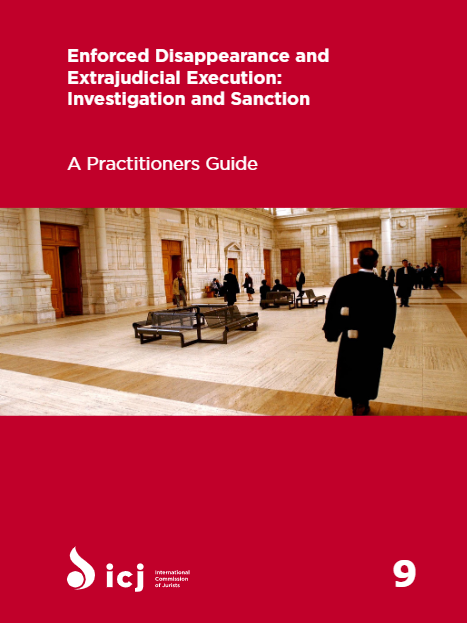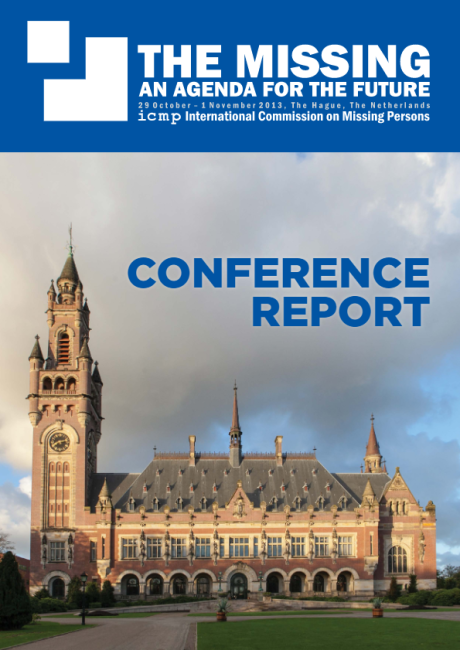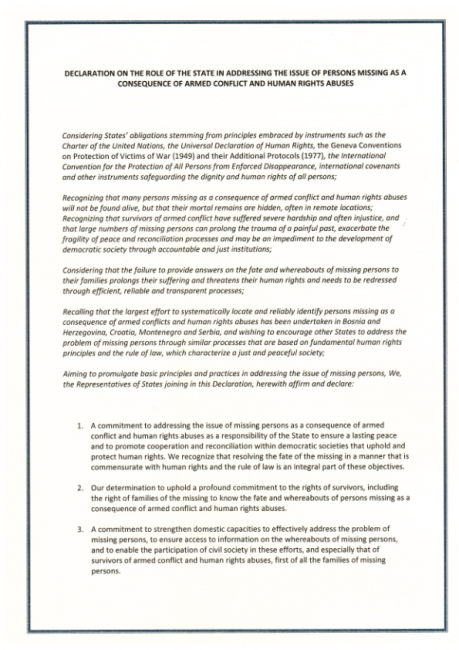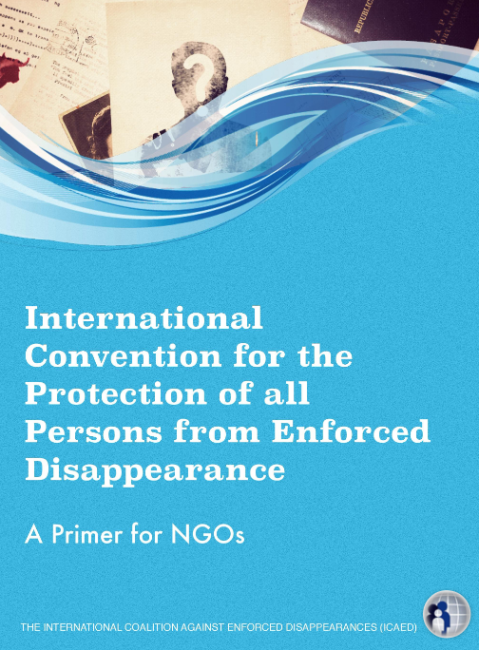
Missing persons and victims of enforced disappearance in Europe
Tens of thousands of persons remain missing or are victims of enforced disappearance across Europe as a result of past repression or conflicts. This situation raises very serious human rights and rule of law questions and, consequently, all European states concerned must undertake the search for missing and disappeared persons as a matter of priority. As time passes, thousands of Europeans are struggling to unveil the truth about the fate and whereabouts of their loved ones. Families of missing persons and direct victims of enforced disappearance have a right to know the truth, and must receive adequate support, assistance, and reparation. This Issue Paper provides an overview of the situation in a number of Council of Europe member states. It also focuses on the major international and European standards and mechanisms active in this field and highlights the case law of the UN Human Rights Committee and of the Inter-American Court of Human Rights. A chapter is devoted to the major relevant jurisprudence of the European Court of Human Rights, noting the need to strengthen the execution of the Court’s judgments by respondent states. In addition, light is shed on European state practice and shortcomings as well as on instances of good practices and initiatives undertaken worldwide. The Commissioner for Human Rights proposes a set of recommendations which may help governments improve their law and practice. They focus on: direct victims and their families; enhancement of processes of exhumation and identification; support to mechanisms working on missing persons and enforced disappearances; training of public officials; truth-seeking initiatives; access to information and archives; the strengthening of domestic legislation; effective investigations and eradication of impunity; and promotion and implementation of relevant international and European standards.






